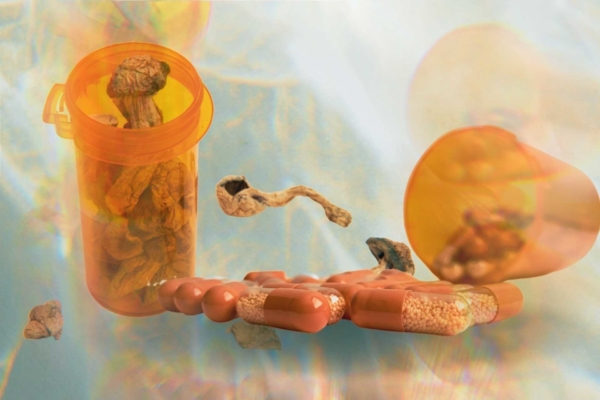
While the use of psychedelics to treat a wide variety of mental health conditions is gaining widespread attention, new research shows psychedelic use may reduce a person’s odds of experiencing physical illnesses such as heart disease or diabetes.
A recent study published in Scientific Reports found that even if a person has only tried a classic psychedelic once in their lifetime, they demonstrated lower odds of both cardiometabolic diseases.
Using data from the United States National Survey on Drug Use and Health (2005 – 2014), the study investigated if there were associations between heart disease and diabetes and the lifetime use of classic psychedelics. This term broadly refers to psychoactive substances that are serotonin 2A receptor agonists, such as psilocybin, LSD, DMT, and mescaline.
Researchers found that heart disease or diabetes prevalence in the past year among respondents who had never used a classic psychedelic was approximately 51% and 52%, respectively. This was higher than prevalence rates of about 45% and 41%, respectively, for respondents who had used a tryptamine (DMT, ayahuasca, or psilocybin) during their lifetime.
Overall, the study found that lifetime classic psychedelic use was associated with 23% lower odds of heart disease in the past year and 12% lower odds of diabetes in the past year.
Researchers said that there were several ways classic psychedelics could, directly and indirectly, lead to improved cardiometabolic health, specifically:
– Classic psychedelics may facilitate healthy lifestyle changes associated with cardiometabolic risk factors, such as a change in diet, alcohol and tobacco consumption, and exercise
– Classic psychedelics have been shown to improve mental health conditions associated with cardiometabolic diseases, such as depression, bipolar disorder, anxiety disorder, post-traumatic stress disorder (PTSD), and chronic stress
– Classic psychedelics have anti-inflammatory and immunomodulatory properties, which are important for both cardiometabolic and mental health
– Classic psychedelics have a high affinity to the key serotonin receptor subtypes associated with cardiometabolic diseases, such as the serotonin 2A and 2C receptors
To date, no study has investigated the long-term cardiometabolic effects of classic psychedelics. The researchers concluded: “classic psychedelic use might be beneficial for cardiometabolic health, but more research is needed to investigate potential causal pathways of classic psychedelics on cardiometabolic diseases … which could potentially be administered both as a pharmacological treatment and as part of a program to facilitate healthy lifestyle changes.”
It was noted that these findings build on earlier research on the association between lifetime classic psychedelic use and various markers of physical health.
A 2021 study found, “respondents who reported having tried a classic psychedelic at least once in their lifetime had significantly higher odds of greater self-reported overall health and significantly lower odds of being overweight or obese.”
This study also noted a significant association between lifetime classic psychedelic use and having a heart condition or cancer in the past 12 months. Furthermore, another 2021 study found that respondents who reported using a classic psychedelic at least once had significantly lower odds of hypertension in the past year.





